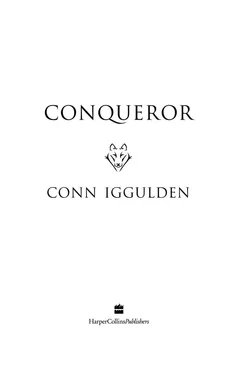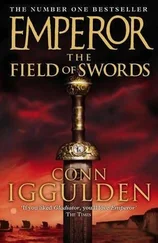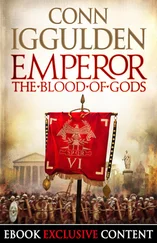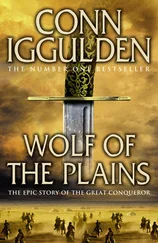It had become his practice to carry enough old wood for a fire each night, if he could. Even that was in short supply. Kublai wondered if Tsubodai had faced the same problems as he drove north and west beyond the boundaries of the nation of Genghis.
He stretched again as his men erected a basic awning held with poles. It would keep the rain off long enough to make a fire from the dry wood they unwrapped. Who would have known what a precious resource a few sticks and logs would become? Kublai’s mouth filled with saliva at the thought of hot food. Most of the men would eat the cheese slop they made by mixing the iron-hard blocks with water. A few dried sticks of meat would give them strength, though it was never enough. They would go on. They would endure anything while they rode with their khan.
General Bayar loved the cold north. From his youth, he had dreamed of what it must have been like to ride with Tsubodai into the white vastness, the land without end. In fact, he had been surprised how green the Russian steppes were in spring, at least the lowlands. His mother had brought him up with stories of Tsubodai’s victories, how he took Moscow and Kiev, how he broke the knights of Christ in their shining armour. To ride in those footsteps was a joy. Bayar knew Christians and Moslems visited holy places as part of their faith. It amused Bayar to think of his journey into Batu’s lands as his own pilgrimage. The rashes and infections that had plagued his men in the humid south slowly vanished, finally able to scar once the pus dried. Even lice and fleas were less active in the cold and many of the men smoked their clothes over open fires to give them relief while they could find it.
Bayar understood he had to be a stern leader for his men. He knew he faced battle ahead and the warriors of three tumans looked to him for leadership. Yet he wanted to whoop like a little boy as his horse plunged through snow, with white hills all around him.
At that height, it was always winter, though the steppes stretched into a green and dun horizon far below. It was open land, without the trappings of civilisation he had come to loathe among the Sung. There were no roads to follow there and his tumans cut their own path. The cold made his bones ache and each breath bit into him, but he felt alive, as if the years in Sung lands had been under a blanket of warm moistness that he was only then clearing from his lungs. He had never been fitter and he rose each day with fresh energy, leaping into his saddle and shouting to his officers. Kublai depended on him and Bayar would not let him down while he lived.
His tumans had not been with Kublai in the south. All of them were warriors Mongke had been bringing against the Sung. They did not have the lean look of those who had been at war for years, but Bayar was satisfied. They had given their oath to the khan and he did not worry about their loyalty beyond that. Part of him exulted at being in sole command of so many, a force to strike terror into Kublai’s enemies. This was the nation: the raiding force of ruthless warriors, armed with sword, lance and bow.
Batu’s khanate was part of the history, its story told around fires a thousand times since. His father Jochi had rebelled against Genghis, the only man ever to do so. It had cost him his life, but the man’s khanate remained, given to Batu by the hand of Ogedai Khan. Bayar had to struggle not to grin at the thought of meeting a grandson of Genghis, first-born to first-born. Batu was one among many who could have been khan, with more right than most. Instead, the line had passed to Ogedai, Guyuk and then Mongke, descendants of different sons. Bayar hoped to see some trace of the Genghis bloodline in the man he would meet. He hoped he would not have to destroy him. He had come to declare Kublai’s khanate and demand obedience. If Batu refused, Bayar knew what he would have to do. He would make his own mark in the history of the nation, as a man who ended a noble line from the great khan himself. It was a bitter thought and he did not dwell on it. Kublai was khan, his brother a weak pretender. There was no other way to see it.
In the cold months, Batu could not have had scouts out for weeks at a time without them losing fingers and toes to the frost. Bayar was not surprised to see isolated stone houses as he led his men down from the high hills. From a great distance, he could see smoke drifting up from dwellings with thick walls and sharply angled roofs, designed to let the snow fall rather than build up a crushing weight. He could also see riders galloping away from them as they caught sight of the tumans, no doubt to inform Batu of the threat. Bayar had broken his last yam station some miles before, taking the furious riders with him. Kublai’s orders no longer applied, now that he had made contact. Arik-Boke would soon hear, as they wanted him to hear, and he would know his northern lands were cut off. Bayar hoped Kublai and Uriang-Khadai had reached Samarkand. Between them, they would isolate Karakorum, snatching away the two great suppliers of grain and herds to the capital.
With battle horns droning, Bayar picked up the pace, his thirty thousand men moving well as they dragged the tail of spare horses behind them. At the far rear, he had men with long sticks to force the herds on when they wanted to stop and graze. They would get a chance to rest and eat when he was done with Lord Batu.
Bayar was able to judge the man he would face by the speed of his response to the incursion. He had to admit it was impressive how fast Batu’s tumans appeared. Even without the warning from yam lines, in a long-settled land with no close enemies, Bayar made barely ten miles across a valley of ice-rimed grass before he heard distant horns and saw black lines of galloping horses coming in fast. Kublai’s general watched in fascination as the numbers visible kept growing, pouring into the valley from two or three different directions. The Batu khanate was barely a generation old and he had no idea how many men could take the field against his incursion. He had planned for a single tuman of warriors, possibly two. By the time they had formed up in sold ranks, blocking his path, he suspected they almost equalled his force - some thirty thousand men ready to defend their master’s lands and people.
Kublai had been away from home too long, Bayar realised. When he had left for Sung lands, Batu’s khanate had barely registered in the politics of Karakorum. Yet Batu’s people had bred and taken in many more over the years. For the first time, Bayar considered that he might not be able to bring crushing force against the man. He had seen the way the tumans moved, recognising the shifting patterns of smaller jaguns and minghaans in the host. It was no wild horde he faced, but trained men, with bows and swords just like his own.
Bayar halted his tumans with a raised fist. He had been given a free hand by Kublai, but for the first time in years he felt his inexperience. These were his own people and he did not know instantly how to approach them as a hostile commander. He waited for a time in the front rank, then breathed in relief as a group detached on the other side and rode into a middle ground. They bore the red flags of the Golden Horde khanate, but also pure white banners. There was no one symbol for truce among the khanates, but white was gaining ascendancy and he could only hope they thought it meant the same as he did. Bayar gestured to his bondsmen.
‘Raise white banners. Two jaguns forward with me,’ he said, digging in his heels before they could move. He focused on the others as he rode forward - wondering if he could think of them yet as the enemy. There was an older man at their centre, surrounded by warriors in full armour with bows in their hands. Bayar headed for him, knowing his men would be forming behind him without further orders.
Читать дальше
Конец ознакомительного отрывка
Купить книгу











